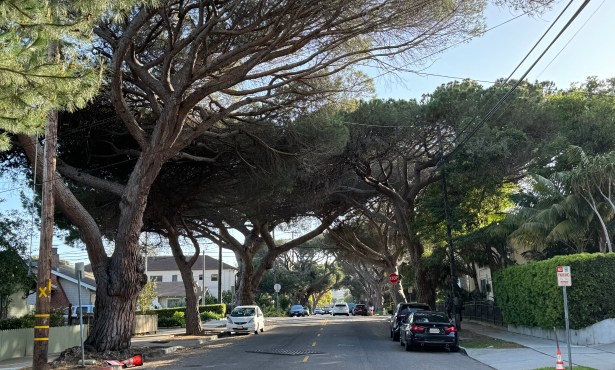Human Trafficking: It’s Happening in Front of You
Learn How Santa Barbara's Easing the Threat and Fear for Victims
When we hear the term human trafficking, we think of a girl kidnapped and forced to work in a brothel in some far-flung country. Few of us realize it’s happening in our community.
Traffickers tend to operate just under the radar in situations most of us prefer to not peer into. Immigration is a polarizing topic in our country at present. So who wants to question the status of immigrants who aren’t seen to leave the building where they work? Do these people have control over their conditions? Are they free to move about, or are they being forced to labor to pay their “debt” for coming into the country? Are their families in their home country threatened if they try to leave the situation?
When you witness a domestic argument in a parking lot, is it really a domestic? Or are you watching an unwilling female, perhaps a runaway, being bullied into continuing to provide sexual services on behalf of the pimp who is controlling her? If you’re staying at a hotel room and there are frequent comings-and-goings in the room next door, and it seems to be one man after another, should you peer a little more closely into what appears to be prostitution? If it is, is the prostitute a willing sex worker deciding which clients she’ll see? Is she even an adult?
Few of us want to probe into these kinds of situations. Traffickers know this, and it gives them cover to operate, right under your nose, in some cases. Traffickers seize victims’ travel papers, or smuggle them in to the country and force them work off their “debt,” in the case of foreign nationals. Those being trafficked won’t know anyone here or the language. They certainly won’t know the governmental system and what their rights might be. If you asked them in their native language if they’re being trafficked, they might have no idea what that term means. They might feel it’s a bad situation, but isn’t this what people have to endure to come here?
Sadly, most trafficking happens much closer to home. Children and young people are trafficked here in Santa Barbara County. Traffickers gain control of local victims by posing as a friendly force: a boyfriend, a new friend who can help, an adoptive family to embrace you. This sounds wonderful to someone fleeing a bad situation without any other resources. The trafficker builds trust, and then once it’s established, begins exploiting the victim. Things are required of the victim in order to help the trafficker. Victims must support the new family they’ve established. The victim at first thinks they’re doing a good thing, though they don’t like it. Some realize they are being exploited and try to leave the situation. That’s when the trafficker shows his true colors and enforces his hold. He may well order other victims to enforce the rules in service to keeping the “family” together.
Our District Attorney Joyce Dudley took an early lead on this issue, creating the Human Trafficking Task Force to handle these kinds of cases. It may seem odd that this role would fall to the DA, but this agency noticed something odd in some of their cases, started looking deeper, and realized what they were truly dealing with — an insidious system of exploiting human beings by forcing them to engage in criminal enterprise. The victim gets arrested, not the trafficker. It took humanitarian insight to see this, and attend to it properly.
The Department of Behavioral Wellness created the RISE program to provide mental hearth services and partner with the DA’s Victims Witness program to help navigate survivors out from under their traffickers. The sheriff is also engaged in stopping human trafficking in this county.
The United Nations Association of Santa Barbara and Tri Counties took great interest in this issue, and produced a forum on the topic last year to educate the community. A new initiative that is a community collaborative has been established — SB SAFE, by the Santa Barbara Alliance for Community Transformation. They are working to create housing and wraparound services to assist survivors of trafficking as they navigate into a life of freedom.
To help people understand the intricacies of helping survivors of human trafficking, SB SAFE is hosting “Trace the Case” next Tuesday at the Faulkner Gallery at the Santa Barbara Public Library downtown at 7 p.m. It’s free to attend, and you’ll gain great insight by walking through the case of a survivor from discovery through the justice system and to freedom. Learn what is happening here, ask questions, and find out what you can do to help.
Sharon Byrne is on the board of the United Nations Association of Santa Barbara and Tri Counties.



